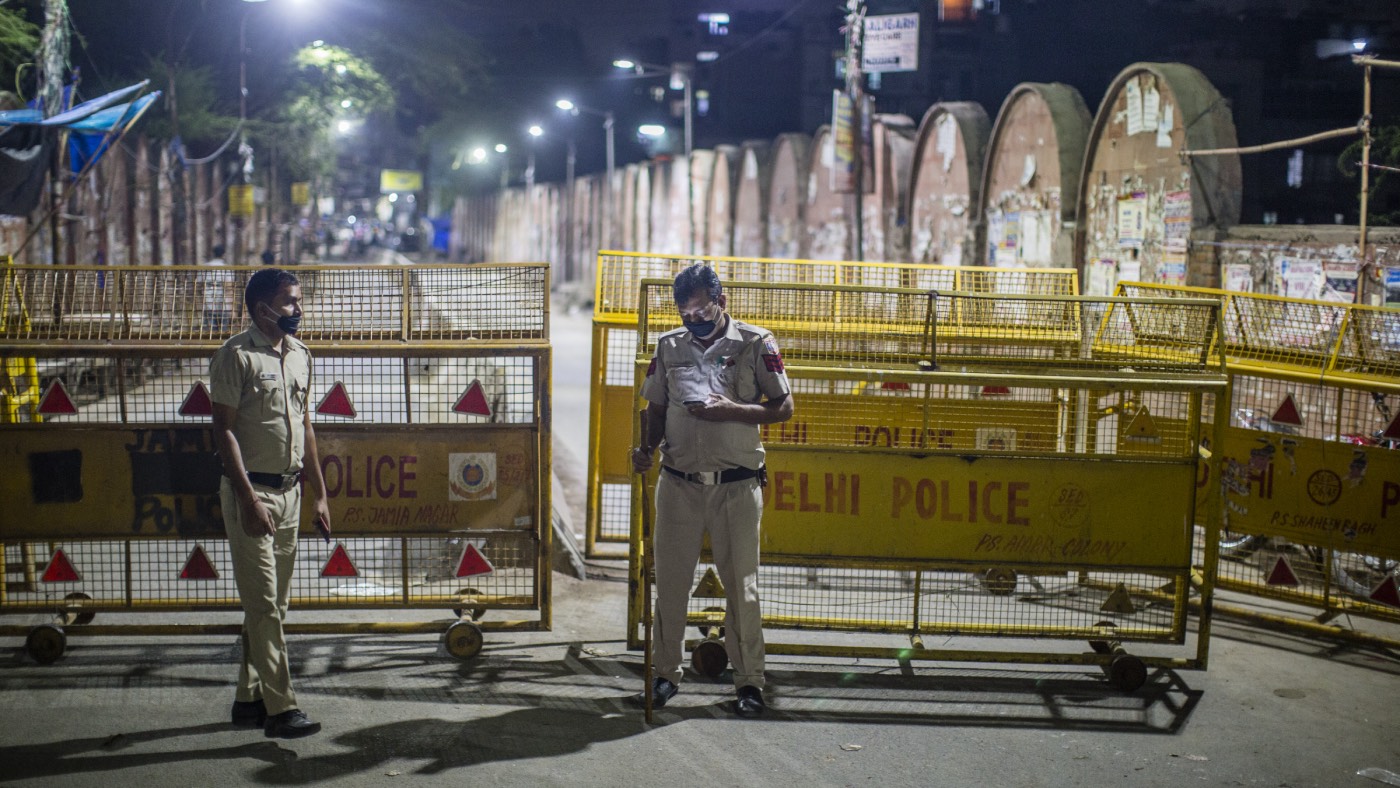Coronavirus: 1.3 billion Indians placed into lockdown
21-day restriction imposed to tackle spread of virus

A free daily email with the biggest news stories of the day – and the best features from TheWeek.com
You are now subscribed
Your newsletter sign-up was successful
India’s Prime Minister Narendra Modi has imposed a nationwide lockdown in an attempt to slow the spread of the coronavirus.
The restrictions came into force at midnight local time and will be enforced for 21 days, after India reported a sharp increase in Covid-19 cases in recent days.
“There will be a total ban on venturing out of your homes,” Modi said in a televised address. “The entire country will be in lockdown, total lockdown.
The Week
Escape your echo chamber. Get the facts behind the news, plus analysis from multiple perspectives.

Sign up for The Week's Free Newsletters
From our morning news briefing to a weekly Good News Newsletter, get the best of The Week delivered directly to your inbox.
From our morning news briefing to a weekly Good News Newsletter, get the best of The Week delivered directly to your inbox.
“To save India, to save its every citizen, you, your family... every street, every neighbourhood is being put under lockdown.”
–––––––––––––––––––––––––––––––
For a round-up of the most important stories from around the world - and a concise, refreshing and balanced take on the week’s news agenda - try The Week magazine. Get your first six issues for £6–––––––––––––––––––––––––––––––
There have been 519 confirmed cases of coronavirus across India and 10 reported deaths. However, analysts say the figure may be so low because of a lack of testing.
A free daily email with the biggest news stories of the day – and the best features from TheWeek.com
Deutsche Welle reports that people displaying symptoms of the disease have been turned away from government run hospitals, even with referrals from private clinics. The virus has spread to almost all states in India, with the highest number of cases in Maharashtra and the southern state of Kerala.
Healthcare facilities are limited in India, says The Guardian, with only 40,000 ventilators, one isolation bed per 84,000 people and one doctor per 11,600 Indians.
Despite Modi’s insistence that there is no need to panic, the lockdown has triggered frenzied scenes, with many Indians reverting to panic buying.
“I have never witnessed such a chaos in my life,” the owner of one store in the Shakarpur district of Delhi, told the Press Trust of India. “All our stocks, including rice, flour, bread, biscuits, edible oils, have been sold out.”
Rajini Vaidyanathan, South Asian correspondent for the BBC, writes: “The implications of a total lockdown in India are huge, not just economically, but socially.
“This is a nation where community is everything. Going to worship at a temple, mosque or church is an essential part of daily life for so many. This is a seismic cultural shift.”
CNN says that at the last count there were around 400 million people in India’s labour market. Of those, more than half were self-employed, and 121 million were casual workers, meaning they were only paid for the days they worked.
This makes the lockdown a frightening prospect for many. Ramesh Kumar, who comes from Banda district in Uttar Pradesh state, told the BBC: “I earn 600 rupees (£6.50) every day and I have five people to feed. We will run out of food in a few days.”
However, Modi insists the measure are necessary, warning that if India does not “handle these 21 days well, then our country... will go backwards by 21 years”.
-
 How the FCC’s ‘equal time’ rule works
How the FCC’s ‘equal time’ rule worksIn the Spotlight The law is at the heart of the Colbert-CBS conflict
-
 What is the endgame in the DHS shutdown?
What is the endgame in the DHS shutdown?Today’s Big Question Democrats want to rein in ICE’s immigration crackdown
-
 ‘Poor time management isn’t just an inconvenience’
‘Poor time management isn’t just an inconvenience’Instant Opinion Opinion, comment and editorials of the day
-
 A Nipah virus outbreak in India has brought back Covid-era surveillance
A Nipah virus outbreak in India has brought back Covid-era surveillanceUnder the radar The disease can spread through animals and humans
-
 How music can help recovery from surgery
How music can help recovery from surgeryUnder The Radar A ‘few gentle notes’ can make a difference to the body during medical procedures
-
 Covid-19 mRNA vaccines could help fight cancer
Covid-19 mRNA vaccines could help fight cancerUnder the radar They boost the immune system
-
 The new Stratus Covid strain – and why it’s on the rise
The new Stratus Covid strain – and why it’s on the riseThe Explainer ‘No evidence’ new variant is more dangerous or that vaccines won’t work against it, say UK health experts
-
 RFK Jr. vaccine panel advises restricting MMRV shot
RFK Jr. vaccine panel advises restricting MMRV shotSpeed Read The committee voted to restrict access to a childhood vaccine against chickenpox
-
 RFK Jr. scraps Covid shots for pregnant women, kids
RFK Jr. scraps Covid shots for pregnant women, kidsSpeed Read The Health Secretary announced a policy change without informing CDC officials
-
 New FDA chiefs limit Covid-19 shots to elderly, sick
New FDA chiefs limit Covid-19 shots to elderly, sickspeed read The FDA set stricter approval standards for booster shots
-
 RFK Jr.: A new plan for sabotaging vaccines
RFK Jr.: A new plan for sabotaging vaccinesFeature The Health Secretary announced changes to vaccine testing and asks Americans to 'do your own research'